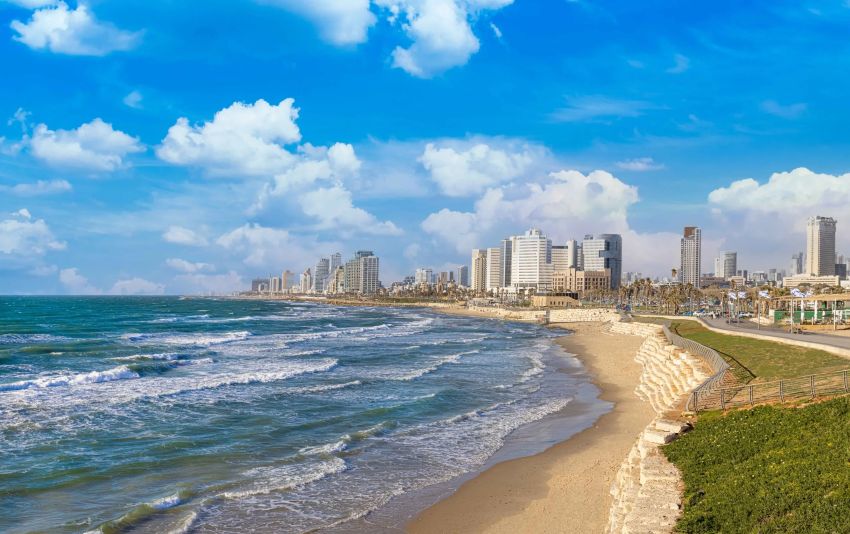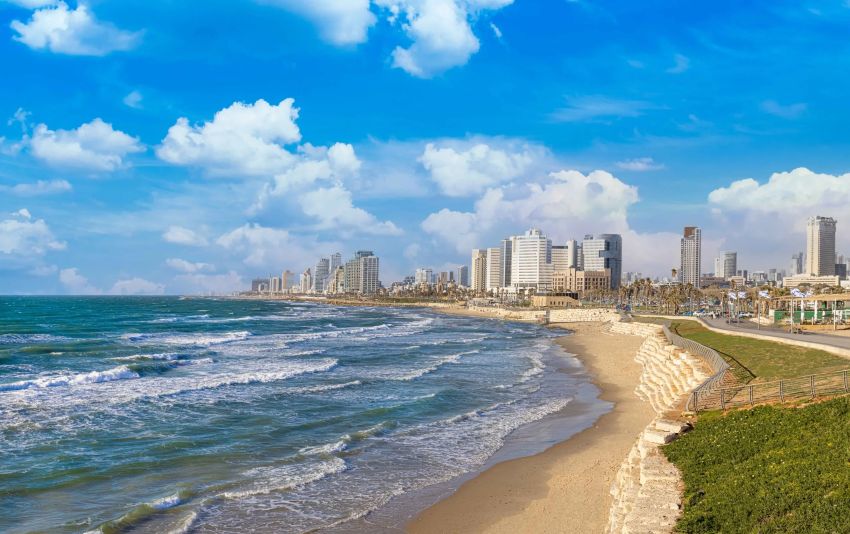Published on
September 15, 2025

Israeli and international communities came together in Tel Aviv on September 14, 2025, for a historic event that focused on Vietnam’s rich cultural heritage, with a particular emphasis on its vibrant history, cuisine, and tourism. The International Women’s Club of Israel (IWC Israel) organised the event, which acted as a bridge to foster interpersonal interactions between Israel and Vietnam and to increase knowledge of Vietnamese culture. Cultural exchanges like this are essential to promoting respect and understanding between the two nations as their bilateral ties continue to grow, particularly in areas like trade, technology, and tourism.
An Evening of Insight and Reflection
The discussion in Tel Aviv was graced by the presence of Professor Nir Avieli, a prominent cultural anthropologist, who shared his extensive knowledge and insights into Vietnamese food culture. Professor Avieli, who serves as the President of the Israeli Anthropological Association and a senior lecturer at the Department of Sociology and Anthropology at Ben Gurion University, is a well-respected authority in the field. Since 1998, he has conducted in-depth ethnographic research in Vietnam, particularly focusing on Hoi An, a coastal town renowned for its rich food culture.
His academic contributions, including his acclaimed book “Rice Talks: Food and Community in a Vietnamese Town” (Indiana University Press, 2012), have provided a deep dive into the intersection of food, community, and local culture in Vietnam. The book examines how meals play a critical role in the social fabric of Vietnamese communities, fostering unity and collective identity. During the event, Professor Avieli eloquently discussed how food not only nourishes the body but also reflects cultural values, social roles, and even gender dynamics within a community.
The Role of Cuisine in Vietnamese Culture
At the heart of the discussion was the essential role of food in Vietnamese life. Professor Avieli explained how Vietnamese meals are more than just sustenance; they are a medium through which the cultural identity of the country is expressed. He elaborated on the intricate balance of flavours, ingredients, and preparation methods that are central to Vietnamese cuisine. From the famous pho to the lesser-known but equally delicious banh xeo (Vietnamese pancakes), every dish carries centuries of history and tradition.
Food, as Professor Avieli explained, serves as a communal experience that brings people together. The sharing of meals, whether during family gatherings, religious celebrations, or community festivals, is an expression of solidarity and mutual respect. The deep connection between food and community is evident in the way meals are prepared and consumed, often involving multiple generations working together to create the dishes that define Vietnamese culture.
Moreover, the food itself is deeply intertwined with the environment. Many Vietnamese dishes are a reflection of the country’s geography, climate, and agricultural practices. Rice, as a staple food, plays a central role in the cuisine, symbolising both prosperity and simplicity. The region’s coastal and mountainous landscapes contribute to the variety of seafood and fresh produce, which are key ingredients in traditional recipes.
Promoting Vietnamese Tourism Through Its Cuisine
The event in Tel Aviv also highlighted the growing importance of cultural tourism in Vietnam, with a particular emphasis on food tourism. As more travellers seek authentic cultural experiences, food has become a significant draw for tourists interested in exploring a country’s heritage through its culinary traditions. Vietnam’s food culture, which combines fresh ingredients, bold flavours, and unique cooking techniques, presents a valuable opportunity for the nation to develop its tourism industry further.
Professor Avieli discussed how Vietnam’s food culture could become a cornerstone of the country’s tourism strategy. By focusing on food tourism, Vietnam has the potential to attract more international visitors, who are eager to experience authentic local flavours and learn about the cultural significance behind each dish. This approach would not only benefit the tourism industry but also provide economic opportunities for local communities, especially in rural areas where food production and traditional cooking methods are central to daily life.
The potential for food tourism is already being recognised by Vietnam’s Ministry of Culture, Sports, and Tourism, which has been working on promoting the country’s culinary traditions as part of its broader tourism marketing efforts. In recent years, food festivals, cooking classes, and culinary tours have become increasingly popular, showcasing the diversity and richness of Vietnamese cuisine to international audiences. The event in Tel Aviv further emphasised the importance of this sector and how cultural exchanges like this one can contribute to building international awareness about Vietnam’s gastronomic offerings.
Strengthening Ties Between Vietnam and Israel
The cultural exchange in Tel Aviv was not only about celebrating Vietnamese cuisine but also about strengthening the growing ties between Vietnam and Israel. Over the past few years, the two countries have expanded their cooperation across various fields, including trade, technology, and academic exchanges. Vietnam and Israel share common interests in innovation, agriculture, and sustainable development, and cultural diplomacy plays a crucial role in deepening these relations.
Events like this one foster meaningful connections between the people of both nations. As Israel continues to develop its culinary scene, the exposure to Vietnamese food culture creates an opportunity for collaboration and mutual learning. In addition, the growing interest in cultural tourism from Israel could encourage more Israeli visitors to explore Vietnam’s culinary delights, boosting tourism and fostering people-to-people exchanges.
The Role of the International Women’s Club of Israel
The International Women’s Club of Israel played an instrumental role in organising the event, furthering its mission to create connections between women from various backgrounds. The IWC is a non-profit, non-religious, and non-political organisation founded in 1969, with more than 250 members from around 45 different countries. The club provides a platform for women to network, share cultural experiences, and engage in various social and charitable activities that foster international understanding and collaboration.
By hosting events like this cultural exchange, the IWC continues to promote diversity and intercultural dialogue, helping to build stronger relationships between Israel and the broader international community.
Conclusion
The September 14, 2025, event in Tel Aviv was a fantastic celebration of Vietnamese food, culture, and travel. Participants developed a greater understanding of the significance of food in Vietnamese culture and the potential for cultural tourism to propel economic development in Vietnam thanks to Professor Nir Avieli’s insights. In addition to deepening the bonds between Vietnam and Israel, this cultural exchange demonstrated the value of food as a means of appreciating and comprehending cultural identity. These kinds of cultural exchanges will be important stepping stones to a deeper level of friendship and respect as both countries continue to strengthen their cooperation.
[Image Source: Tourist Israel Official Website]



